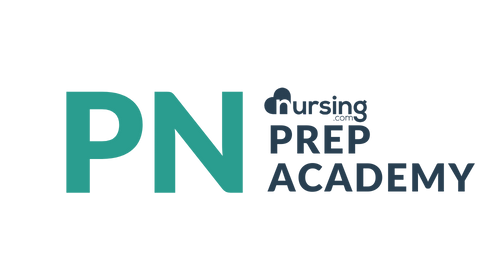Module 1: Medical Terminology
Module 2: Fundamentals
Module 3: Nursing Process & Critical Thinking
Module 4: Health Assessments
Module 5: Nursing Skills
Module 6: Activities of Daily Living
Module 7: Nutrition & Fluid Balance
Module 8: Safety and Infection
Module 9: IV Skills
Module 10: Cardiac
Module 11: Neuro
Module 12: Respiratory
Module 13: GI and GU
Module 14: Metabolic and Endocrine
Module 15: General Body Systems
Module 16: Pediatrics
Module 17: Mental Health
Module 18: OB Maternity
Module 19: Lab Values and Diagnostics
Module 20: Pharmacology Basics
Module 21: OB Pharmacology
Module 22: Pharmacology Skills
Module 23: Community Health Nursing
Module 24: Test Taking and Study Techniques
Module 25: Communication for Nurses
Module 26: Psychosocial Communication
Module 27: Transition to Practice
Module 28: First Year In Nursing
Module 29: Exploring Nursing Education and Careers
MedTerm Basic Word Structure
Overview
- Basic Word Structure
- Combining Forms
- Prefix/Root/Suffix
- Format
- Homonyms
Nursing Points
General
- Combining Forms
- Root word
- Used to describe location/system
- Have at least a minimum of 1 per word
- Combining vowel
- Used to combine the root with a prefix or suffix
- Root word
- Prefix/Root/Suffix
- Prefix
- Beginning portion of the word
- Influences the meaning of the word
- Describes size, orientation or position
- Root
- Foundation of the term
- Suffix
- Word ending
- All medical terms have a suffix
- Prefix
- Format
- Root/Suffix
- Begin with suffix
- Add root word with combining vowel
- Example
- Hematology
- -logy = study of
- hemat/o = blood
- hematology = study of blood
- Hematology
- Example
- Prefix/Root/Suffix
- Begin with suffix
- Add root word with combining vowel
- Add prefix for location, size, orientation or position
- Example
- -emia = blood condition
- glyc/o = glucose
- hyper = excessive
- hyperglycemia = excessive (or high) blood sugar
- Example
- Root/Suffix
- Homonyms
- Words that sound the same but are different
- Enunciation & proper spelling
- “Ad” vs “ab”
- Adduction vs abduction
- Adduction means to “move toward midline”
- Abduction means to “move away from midline” in medical context
- “Ad” vs “ab”
- Context
- When discussing medical terminology, be sure to include context
- Ileum vs ilium
- Ilium is bone = can be fractured
- Ileum is small intestine = can implicate GI disease
- i.e. an “ileum” cannot be fractured
- When discussing medical terminology, be sure to include context

